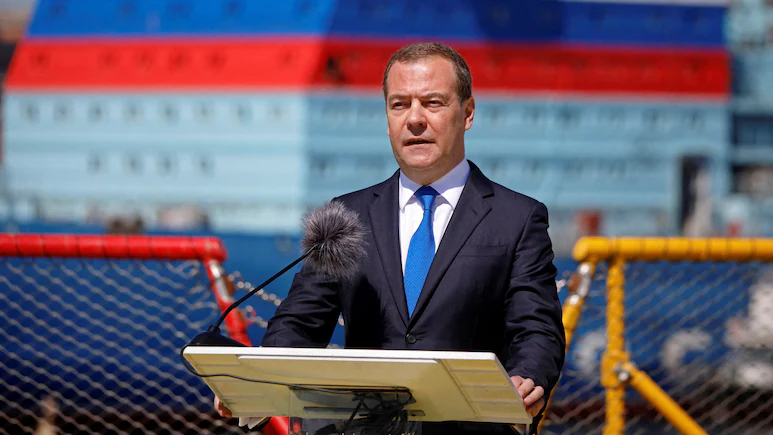In a fresh wave of international political confrontation, Dmitry Medvedev, former President and current Deputy Chairman of Russia’s Security Council, issued a scathing response to US President Donald Trump following controversial remarks made on social media.
Posting on Truth Social, Trump lashed out at both India and Russia, stating he doesn’t care about their bilateral ties, and mocked their economic struggles. “They can take their dead economies down together,” he wrote, while also imposing 25% tariffs on Indian imports and criticizing New Delhi’s military purchases from Moscow.
This marks the second public exchange between the two leaders this summer.
Trump argued that India remains Russia’s largest buyer of energy, alongside China, despite ongoing calls from the global community to isolate Moscow due to the war in Ukraine. He further noted India “has always bought a vast majority of their military equipment from Russia.”
Reacting sharply, Dmitry Medvedev turned to Telegram to counter Trump’s statements. Referencing the US President’s inflammatory language, Medvedev said:
“As for the talk about the ‘dead economies’ of India and Russia and ‘entering dangerous territory’ – maybe he should recall his favorite movies about ‘The Walking Dead’ and remember how dangerous the so-called ‘Dead Hand’ could be.”
Medvedev’s allusion to the Dead Hand, or Perimeter system, highlights a Cold War-era automatic nuclear retaliation mechanism, capable of launching a counterstrike even if leadership were wiped out — a reminder of Russia’s enduring military leverage.
Trump didn’t stop at India and Russia — he took a personal jab at Medvedev, calling him a “failed former President of Russia” who “thinks he’s still President” and warned him to “watch his words.”
The Russian politician responded with pointed sarcasm:
“If a few words from the former president of Russia can provoke such a jittery reaction from the mighty president of the United States, then Russia must be completely in the right. We’ll keep moving forward on our own path.”
This intensifying war of words unfolds against a backdrop of shifting geopolitical alliances and a widening divide between global powers. With the US toughening its trade and defense stance on India, and Russia continuing to deepen its strategic ties with Asian allies, analysts view this social media feud as more than just rhetorical.
It reflects an evolving multipolar world order where verbal attacks carry significant diplomatic consequences.



